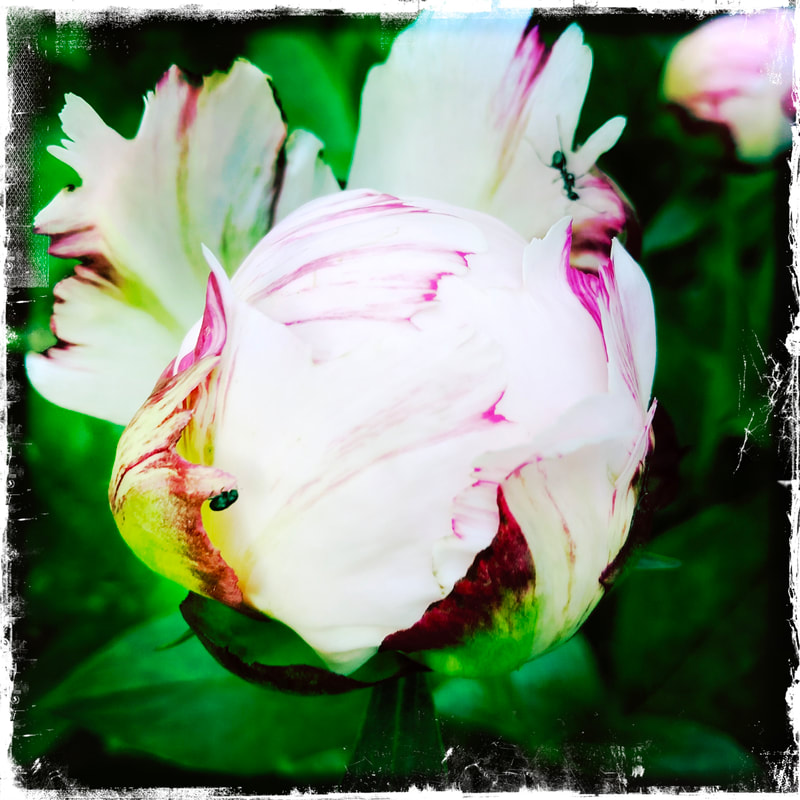ASSAY: A JOURNAL OF NONFICTION STUDIES
9.1
9.1
|
So many hours I must tend my flock;
So many hours I must take my rest; So many hours I must contemplate; So many hours I must sport myself; —William Shakespeare, King Henry VI, 1623 When I became a farmer at age twenty-five, the weighty work ethic I had been hauling around from job to transient job finally found a home. Farm work never ends, and neither did my ability to rise to the task of yet another emergent project, another early morning of chores, another broken fence line birthing pigs on the loose. The more I worked—hauling water, cutting firewood, digging holes, and bending to plant—the stronger my body became. My prime error was confusing this physical power with invincibility, mistaking my mass of muscles for human mechanization. Yet, I felt like a machine: I would add fuel (minimal sleep, food, caffeine) and work all day, often letting my gauge graze Empty before taking a break to refuel—but rarely rest.
Why? What inner sense urged me toward compulsive work? What ingrained ideas pushed me to produce food at the expense of personal peace? I woke in the rainy dark of pre-dawn to haul a trailer packed with pigs around slippery switchbacks, spent hot days unfurling thin wire, hoping the threat of shock would keep my feral herd secure, endured long evenings massaging cabbage, peppers, and carrots into kraut. If my exhausting overdrive was the result of learned behavior, I realized, I needed to examine my Maine raising for clues. At first, my immediate family—artist mother, carpenter father, winsome baby brother—revealed little. Then, I began to consider the back-to-the-land culture in which my parents had steeped themselves by the time I was born in 1985. What might the literature of the back-to-the-land movement of the 1970s—and particularly the memoirs of that time—reveal about labor and what I now know as its necessary balance point, leisure? How do the handful of back-to-the-land Mainers who recorded their experiences characterize labor—the foundation of their traditional-by-choice lives—and how is the character of leisure revealed in these writings, if at all? Despite their best efforts, did these countercultural exiles harbor vestiges of America’s long-held Puritanical attitudes about work, rest, and virtue when they escaped the urbs and suburbs for the woods of Maine? Do I carry those antiquated ideas with me as I work, five decades on? I have learned the hard way that neither labor nor leisure are self-supporting. The natural world, if observed, soon teaches us that the antidote to imbalance lies within the opposite. Every autumn, leaves blanket the forest floor, making mulch to protect tender shoots from the killing frosts of spring, which, in turn, grow tall and drop their own leaves. I now know that a healthy dose of leisure restores what too much labor has set asunder. As I navigate this novel practice of balance, I continue to ponder the roots of my habit of compulsive overwork. In poring over Maine’s back-to-the-land literature, I discovered that the memoirists’ characterization of both labor and leisure reveals a bias toward labor for adherents of the homesteading movement of the 1970s, an asymmetry that these rural refugees passed along to the next generation. Thus, as I read, I also uncovered a clue to the root of my own ingrained imbalance of leisure and labor.
|
|
When not at her writing desk, Quincy Gray McMichael stewards her farm, Vernal Vibe Rise, on Moneton ancestral land in the mountains of West Virginia. Her writing—both creative nonfiction and poetry—has been published in Yes! Magazine, The Dewdrop, Open: A Journal of Arts and Letters, and Greenbrier Valley Quarterly, among other publications, and is forthcoming from Appalachian Review. Quincy holds an MFA in Creative Nonfiction from the Naslund-Mann Graduate School of Writing at Spalding University. She is completing a hybrid memoir that explores obsession and overwork through a blend of poetry and prose.
|

